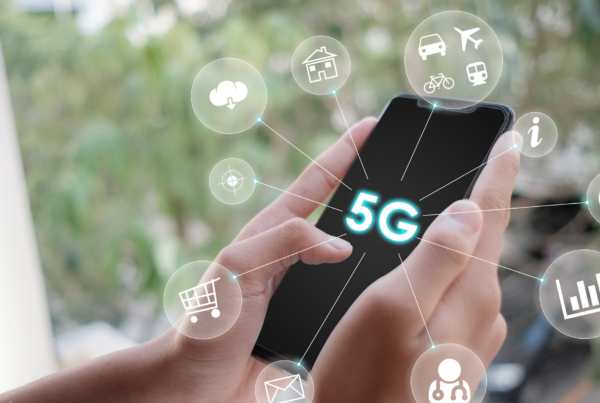In our increasingly interconnected world, communication transcends geographical boundaries, connecting individuals from different cultures and belief systems. At the forefront of this global exchange lies the telecommunications industry, a powerful catalyst in bridging the gaps between diverse communities. Telecommunication, the transmission of information over significant distances, has evolved far beyond mere conversations. It has become a lifeline, enabling cultural exchange, fostering understanding, and promoting unity in an otherwise fragmented world.
This blog will explore the profound role of telecommunication in connecting people from diverse backgrounds. We will delve into the ways telecom companies are actively promoting diversity and inclusion, and we will examine the positive impact this has on communities worldwide.
The Role of Telecoms in Connecting Diverse Cultures and Religions
Telecommunication technologies have broken down traditional barriers, allowing people from different cultures and religions to interact and communicate with one another. Let’s look at some of the key ways telecom bridges these divides:
- Facilitating Cross-Cultural Communication: Communication is the foundation of any relationship, and telecom makes it possible for people from different cultural backgrounds to connect. Whether through voice calls, video chats, or instant messaging, individuals can now easily engage in conversations and share experiences, leading to greater understanding and appreciation of different cultures.
- Promoting Cultural Exchange: Telecoms have opened up avenues for cultural exchange on a global scale. Through social media platforms, online communities, and virtual events, people can share their traditions, customs, and beliefs with a wider audience. This exchange fosters mutual respect and breaks down stereotypes.
- Supporting Religious Practices: Telecoms has also played a role in supporting religious practices. For instance, during the COVID-19 pandemic, many religious communities turned to virtual platforms for prayer services, religious gatherings, and educational programs. This ensured that people could stay connected to their faith even when physical gatherings were not possible.
- Enabling Global Collaboration: Global collaboration across diverse teams is made possible through the essential role of telecommunications. Businesses, educational institutions, and non-profit organisations rely on communication tools to bring together people from different parts of the world to work on shared goals.
Telecom Companies Efforts to Promote Diversity and Inclusion
Recognising the power of telecoms to connect diverse communities, many telecom companies are actively working to promote diversity and inclusion within their organisations and through their initiatives. Here are some notable examples:
- Diverse Workforce: Telecom companies are striving to create a workforce that reflects the diversity of their customer base. This includes actively recruiting and promoting employees from different backgrounds, ensuring that everyone has an equal opportunity to succeed. Telkom South Africa has made significant strides in promoting diversity and inclusion. [1] The company has a dedicated diversity and inclusion team, and has implemented various programs to support women, people with disabilities, and LGBTQ+ employees.
- Culturally Sensitive Products and Services: Telcos are developing products and services that cater to the needs of diverse communities. This includes offering multilingual customer support, providing culturally relevant content, and designing user interfaces that are accessible to people with disabilities. Vodafone, for example, has a global diversity and inclusion strategy that focuses on creating an inclusive workplace, developing inclusive products and services, and supporting community initiatives. [2]
- Community Engagement Programs: Many telecom companies are investing in community engagement programs that promote diversity and inclusion. These programs might involve partnering with local organisations, sponsoring cultural events, or providing technology training to underserved communities. For instance, Verizon has a comprehensive diversity and inclusion program that covers all aspects of its business. The company has also launched several initiatives to support underserved communities and promote digital inclusion. [3]
- Advocacy and Awareness Campaigns: AT&T has a long-standing commitment to diversity and inclusion, and has been recognised for its efforts by several organisations. The company has implemented various programs to promote diversity in its workforce, supply chain, and community engagement efforts. [4] Several other telecom companies are also using their platform to raise awareness about diversity and inclusion. This might involve launching advertising campaigns that celebrate diversity, supporting initiatives that promote equality, or speaking out against discrimination.
The Positive Impact on Communities
The proactive measures taken by telcos to champion diversity and inclusion have a ripple effect of positivity on communities across the globe. The ability to connect and engage with individuals from different cultural backgrounds cultivates a deeper understanding and appreciation of various perspectives. This cross-cultural interaction plays a crucial role in dismantling stereotypes, mitigating prejudices, and fostering a society that embraces inclusivity.
Moreover, providing access to telecommunication services can be a game-changer for marginalised communities, opening doors to education, healthcare, and economic opportunities that were previously out of reach. This newfound empowerment can uplift individuals, leading to increased social mobility and a better quality of life. Furthermore, when communication barriers are lowered and people from diverse backgrounds can easily connect and share ideas, it strengthens community bonds and creates a sense of belonging. This interconnectedness acts as a catalyst for increased collaboration, innovation, and the overall cohesion of society.
Conclusion
The telecommunication sector plays a vital role in connecting people from different cultures and religions, breaking down barriers and promoting understanding. Telcos are increasingly recognising the importance of diversity and inclusion, implementing various initiatives to create a more inclusive industry and society.
As technology continues to evolve, the power of telecommunication to connect and empower diverse communities will only grow stronger. It is incumbent upon all stakeholders, including telecom companies, governments, and individuals, to harness this power responsibly and ethically, ensuring that telecommunication serves as a force for good in our increasingly interconnected world.









